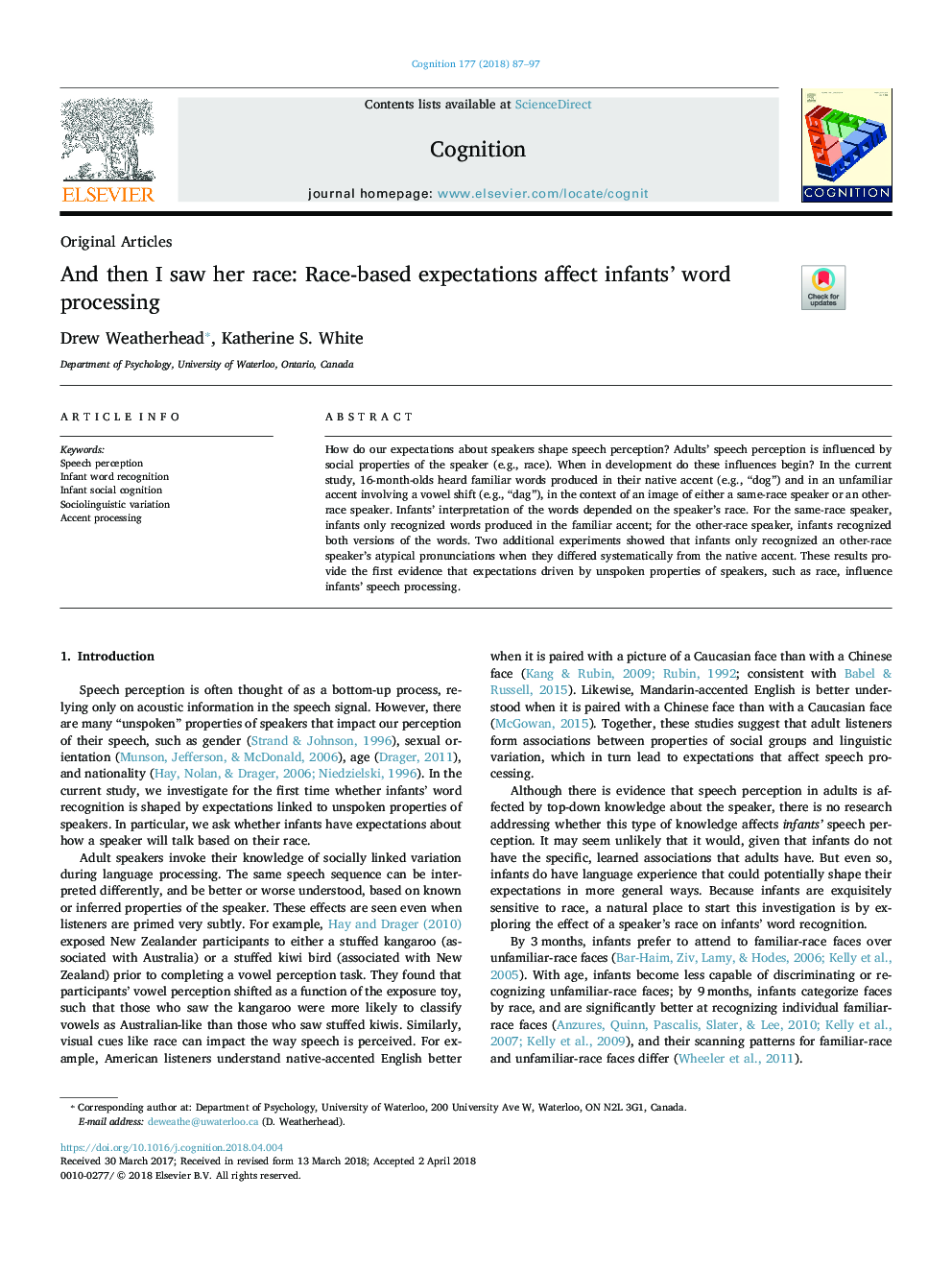| Article ID | Journal | Published Year | Pages | File Type |
|---|---|---|---|---|
| 7285277 | Cognition | 2018 | 11 Pages |
Abstract
How do our expectations about speakers shape speech perception? Adults' speech perception is influenced by social properties of the speaker (e.g., race). When in development do these influences begin? In the current study, 16-month-olds heard familiar words produced in their native accent (e.g., “dog”) and in an unfamiliar accent involving a vowel shift (e.g., “dag”), in the context of an image of either a same-race speaker or an other-race speaker. Infants' interpretation of the words depended on the speaker's race. For the same-race speaker, infants only recognized words produced in the familiar accent; for the other-race speaker, infants recognized both versions of the words. Two additional experiments showed that infants only recognized an other-race speaker's atypical pronunciations when they differed systematically from the native accent. These results provide the first evidence that expectations driven by unspoken properties of speakers, such as race, influence infants' speech processing.
Related Topics
Life Sciences
Neuroscience
Cognitive Neuroscience
Authors
Drew Weatherhead, Katherine S. White,
